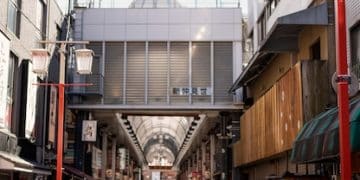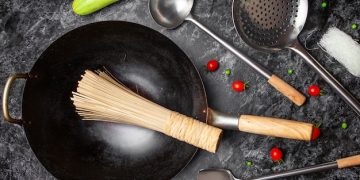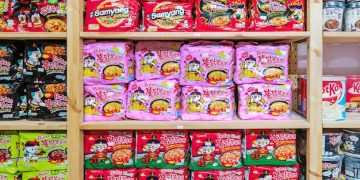Japanese Souvenir Shopping: Unique Gifts Under $50 & Avoid Tourist Traps
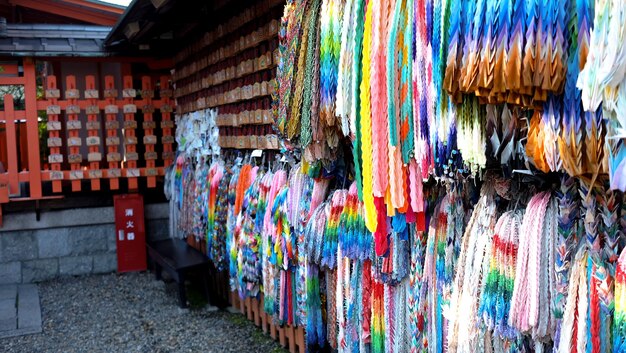
Japanese souvenir shopping can be delightful without breaking the bank; discover how to find unique, high-quality gifts for under $50 by avoiding tourist traps and exploring local crafts, traditional sweets, and affordable cultural gems.
Embarking on a trip to Japan? One of the most exciting parts is bringing home a piece of the culture. But navigating the crowded souvenir shops can be overwhelming and often overpriced. This guide is designed to help you with Japanese souvenir shopping: Avoid tourist traps and find unique, high-quality gifts for under $50.
Navigating the World of Japanese Souvenir Shopping
Japanese souvenir shopping offers a fantastic opportunity to immerse yourself in the local culture and find memorable keepsakes. However, it’s also easy to get caught up in tourist traps that offer generic and overpriced items. Knowing where to look and what to look for can make all the difference.
Let’s explore the strategies to avoid tourist traps and find genuine, high-quality souvenirs that reflect the unique charm of Japan, all while staying within your budget.
Understanding Tourist Traps
Tourist traps are often located in high-traffic areas and offer items that are mass-produced and lack authenticity. Recognizing these traps is the first step in finding better alternatives. Here are a few indicators to watch out for:
- Prime Locations: Shops near major landmarks or train stations often cater to tourists and inflate prices.
- Generic Items: Keychains, magnets, and t-shirts emblazoned with common symbols (like Mount Fuji) are usually overpriced.
- Pushy Sales Tactics: Aggressive salespeople or constant “special offers” can be a sign of lower-quality goods.
Seeking Authentic Alternatives
To find truly unique souvenirs, venture away from the main tourist areas and explore local markets, craft shops, and department stores.
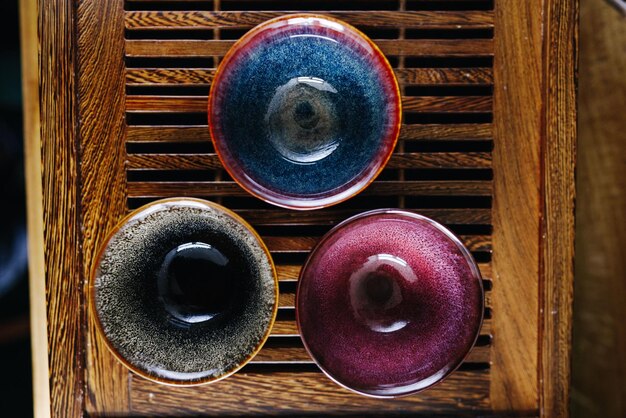
Exploring Local Markets and Craft Shops
Local markets and craft shops offer a more authentic shopping experience and a chance to find one-of-a-kind souvenirs. These venues often feature artisans who are passionate about their craft, providing higher-quality goods at reasonable prices.
Let’s highlight the best way to take advantage of these gems!
Flea Markets and Street Fairs
Flea markets and street fairs are excellent places to discover vintage items, handmade crafts, and local specialties. These events often occur on weekends and offer a lively atmosphere.
- Toji Temple Market (Kyoto): Held on the 21st of each month, this market offers antiques, textiles, and artisanal foods.
- Hanazono Shrine Antique Market (Tokyo): Held every Sunday, this market features a wide range of antiques, ceramics, and vintage clothing.
- Local Shrine Sales: Many shrines host monthly sales with local crafts and goods.
Artisan Workshops and Galleries
Visiting artisan workshops and galleries provides a direct link to the creators of unique items. These establishments often allow you to see the crafting process firsthand and purchase items directly from the artist.
Also, keep in mind that these tend to be a good source of insight into the local culture and history.
Discovering Treasures in Department Stores and 100 Yen Shops
While department stores might seem like high-end shopping destinations, they often have surprisingly affordable sections dedicated to local crafts and specialties. 100 Yen shops, on the other hand, are treasure troves of budget-friendly souvenirs.
Below are some tips to maximize your shopping journey.
Department Store Delights
Department stores cater to both locals and tourists, so the diversity of products are endless. Focus strategically on areas with better deals.
- Basement Food Halls (Depachika): These cavernous food halls offer an array of regional sweets, pickles, and teas, perfect for edible souvenirs.
- Craft Sections: Look for sections featuring traditional crafts like ceramics, textiles, and lacquerware.
- Seasonal Items: Department stores often carry seasonal items tied to festivals or events, offering unique and timely gifts.
The Magic of 100 Yen Shops
100 Yen shops (like Daiso and Can Do) are ubiquitous in Japan and offer a wide range of items for just 100 yen (plus tax). These shops are perfect for finding affordable souvenirs without compromising on quality.
The next section presents some recommendations on what products you can find in these type of stores
Unique and Affordable Souvenir Ideas
With a bit of creativity, you can find many unique and affordable souvenirs that capture the essence of Japan. Here are some ideas to get you started, ensuring you take home something special without exceeding your $50 budget.
Let’s explore some concrete options!
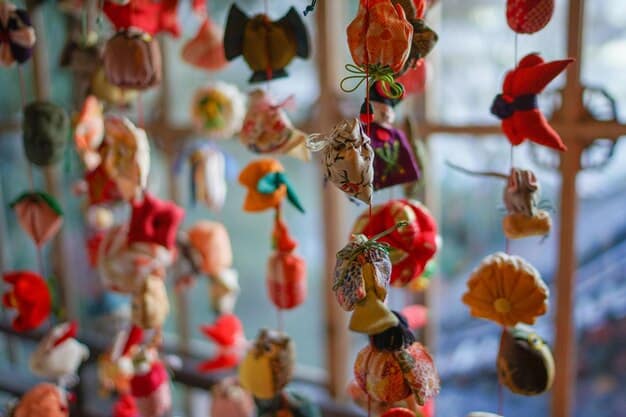
Traditional Crafts
Traditional crafts reflect the rich cultural heritage of Japan and make for memorable souvenirs. You can find high-quality crafts at reasonable prices if you know where to look. Some worth considering are…
- Washi Tape: Decorative paper tape with traditional patterns, perfect for crafts and wrapping gifts.
- Furoshiki: Versatile wrapping cloths with beautiful designs, used for carrying items or gift-wrapping.
- Maneki Neko: Lucky cat figurines that bring good fortune, available in various sizes and styles.
Edible Souvenirs
Edible souvenirs are a delicious way to share the flavors of Japan with friends and family. They are easy to transport and often offer a unique taste of Japanese culture.
Here are some top tier recommendations:
Smart Budgeting and Negotiation Tips
Even with the best shopping strategies, keeping your souvenir budget in check requires some planning and savvy negotiation. Here are some tips to ensure you get the best value for your money and avoid overspending.
Saving some Yens is essential to make your trip worthwhile.
Setting a Souvenir Budget
Before you start shopping, set a realistic souvenir budget based on your overall travel expenses. This will help you prioritize your purchases and avoid impulse buys.
- Allocate Funds: Determine how much you can realistically spend on souvenirs without impacting other travel expenses.
- Track Spending: Keep a running tally of your souvenir purchases to ensure you stay within budget.
- Prioritize Items: Identify the souvenirs that are most important to you and allocate more of your budget to those items.
Negotiation Etiquette
While price negotiation is less common in Japan than in some other countries, it is still possible in certain situations, especially at flea markets and independent shops. Here’s how to approach negotiation:
For a quick recap, keep in mind this final section!
| Key Point | Brief Description |
|---|---|
| 🛍️ Avoid Tourist Traps | Shop away from main tourist spots for better prices and unique items. |
| 🏮 Explore Local Markets | Visit flea markets and craft shops for handmade, authentic souvenirs. |
| 🍱 Try Edible Souvenirs | Buy regional sweets, teas, and snacks from department stores or local shops. |
| 💴 Set a Budget | Decide how much to spend before you shop and stick to it. |
Frequently Asked Questions
▼
Avoid shops near major landmarks selling generic items like magnets and keychains. These places often inflate prices and offer low-quality goods. Instead, explore local markets and less crowded areas for authentic souvenirs.
▼
Explore local markets, craft shops, and artisan workshops. Department stores’ basement food halls (Depachika) and 100 Yen shops are also great options. Look for items like washi tape, furoshiki, and regional sweets.
▼
Negotiation is not common but possible at flea markets and independent shops. Be polite and respectful, and ask if there’s a discount for multiple purchases. A friendly approach can often lead to a better deal.
▼
Popular edible souvenirs include matcha tea, senbei (rice crackers), and regional sweets like mochi and wagashi. These items are available in department stores and local shops, offering a taste of Japanese culture.
▼
Yes, 100 Yen shops (like Daiso) are excellent for affordable souvenirs. You can find a wide variety of items, including stationery, small crafts, and household goods, all for just 100 yen (plus tax), making them budget-friendly.
Conclusion
By steering clear of typical tourist traps and exploring local markets, craft shops, department stores, and 100 Yen shops, you can find unique and high-quality Japanese souvenirs without exceeding your $50 budget. Happy shopping!
